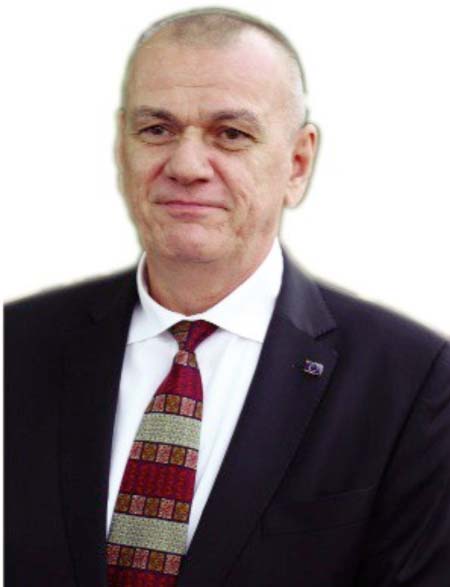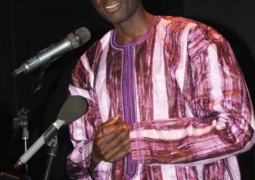
The project, launched by EU Ambassador H.E. Attila Lajos, at the Paradise Suites Hotel, will be implemented in the West Coast Region and Central River Region.
In her welcoming remarks, Professor Adriana Kaplan Marcusan, Director of Wassu Gambia Kafo, said the overall objective of the project is to reduce gender-based violence, notably Female Genital Mutilation/Cutting in The Gambia.
She said the specific objective is to strengthen the Gambian health system’s ability to manage and prevent FGM/C.
Ambassador Lajos, in his launching statement, said the project is one of three projects financed through the CSO/LA thematic calls for proposal by the EU and implemented by NGOs such as Wassu Gambia Kafo.
He said the specific objective is to strengthen the health system in the management and prevention of FGM/C by generating scientific knowledge and transferring it to key stakeholders such as beneficiaries of public health system, health professionals, traditional birth attendants, communities and religious leaders, teachers and tutors, doctors and students of health sciences in The Gambia.
He said the project is expected to benefit 45 per cent of the Gambian population comprising mostly women and the girl-child.
“The European Union is committed to child and women’s rights which are key issues necessary for sustainable development in any community,” he stated.
He added that human right has been identified as one of the five essential principles of EU cooperation strategies.
“Human rights, equal opportunities and access to resources for both men and women are essential to eradicate poverty and achieve all MDGs,” he stated.
He noted that women and the girl child play a critical role in addressing the main challenges that humanity faces today, such as health, education, livelihood and nutritional issues and human rights.
The EU delegation in The Gambia acknowledges Gambia Government’s contribution and achievements on implementation of the Beijing Declaration and Plan for Action, he remarked.
He said they also recognised the enactment of several legislations in support of women and children’s rights such as the Children’s Act of 2005, the Women’s Act of 2010, the Domestic Violence Act of 2013, and the Sexual Offences Act of 2013.
They also recognised that the Gambia Government had initiated and adopted a number of policies on rights of women and children in The Gambia and most notably the recent banning of Female Genital Mutilation/Cutting.
“Female Genital Mutilation/Cutting (FGM/C) is internationally recognised as the most extreme in violation of the rights of the girl-child and women, including their sexual and reproductive rights, rights to health and physical integrity, equality and non-discrimination,” he said.
“The practice had both immediate and long-term consequences for girls and women, being that risk of complications increased 4 times during labour and delivery for mothers and their newborns according to clinical studies done by you (Wassu Gambia Kafo).”
The EU Ambassador further noted that in The Gambia, the overall prevalence of FGM/C was estimated at 76.3 per cent (MICS 2010), adding that this prevalence figure was considered high but as they are all aware that now it is banned, hopefully the prevalence figure would drop significantly.
Ambassador Lajos therefore urged all those concerned and campaigning for the practice to be banned and not to be complacent, because evidence had shown that criminalisation of FGM/C could lead to the practice go underground, resulting in FGM/C being undertaken in secret, especially on newborn babies and infants.
However, he added, critical issues remain to be effectively addressed so as not to hamper the efforts, saying that FGM and other harmful traditional practices are still widely perpetrated, especially in neighbouring countries.
“With the project’s focus areas, it is simultaneously contributing to ensure that Gambian girls and women receive quality healthcare when facing FGM/C complications and also empowering communities to abandon FGM/C through culturally sensitive strategies,” he noted.
Ambassador Lajos also said he is personally committed to strongly supporting these changes by all means available.
He also called upon his brothers, all men in The Gambia and beyond to join him in enhancing this cultural change.
He assured them of the continuous, strong commitment of the European Union to assist the people of The Gambia and the Gambian Government in their drive to development.
“You can count on the European Union as a close partner in the future development of the Gambia,” he said.
Janko Jimbara, Deputy Permanent Secretary at the Ministry of Health and Social Welfare, in delivering a solidarity statement, said the practice of FGM/C is deeply rooted in the Gambian culture.
He said there is little doubt that the practice had enormous implication on health and well-being of people.
He said fighting to completely stop FGM/C in addition to the political support would require concerted efforts and a multiplicity of strategies targeting various professional agencies.
DPS Jimbara further noted that the role of healthcare professionals is quite critical for some obvious reasons, as they are in direct contact with the community and “are respected and influential in the communities”.


